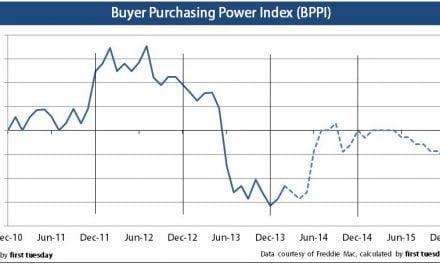Whether you have a small, medium or large brokerage, one of your most important tasks is growing your business by recruiting new and aspiring agents. Not only do new agents bring revenue to your company, they also bring excitement and new energy to your office.
When recruiting, keep in mind that there are three types of recruits to focus on:
- aspiring agents;
- newly licensed agents; and
- experienced agents.
Determine which type of agent fits your recruiting plan best. If you decide to go with multiple types, prioritize them and create different strategies to attract each type of agent.
Aspiring agents
New recruits don’t need to be licensed to be considered for employment in your office. Further, unlicensed individuals can be an extremely productive part of your business model, particularly if these individuals are groomed and trained to later become licensed. These individuals frequently take the form of finders.
Finders are those with a desire to enter the real estate profession – aspiring agents – and do not need to be licensed by the DRE so long as their conduct with members of the public remains limited to that of a finder.
Finders are not controlled by DRE law and regulations – rather, finders are controlled by California law. Thus, finders are not real estate licensees – they are unlicensed agents-in-training.
An unlicensed finder on behalf of a broker or agent, may:
- be recruited and immediately hired under a written contract of employment [See RPI Form 115];
- begin work locating and introducing transaction participants who need real estate services to licensees at the brokerage office, functioning as a “runner” or “gopher” while bonding with the brokerage office as part of the team;
- study and train to be licensed by enrolling in the three DRE-approved statutory pre-licensing courses needed to qualify for the salesperson exam while getting practical experience;
- pass the state exam administered by the DRE; and
- restructure their employment with the brokerage office on becoming a DRE licensed salesperson, taking on the rather demanding fiduciary duties a licensee owes to clients. [See RPI Form 505 and 506]
Visit our Hire recruits as finders today, licensees tomorrow page for more information.
Newly licensed agents
These are the agents who have just received their real estate licenses from the Department of Real Estate (DRE), but are not yet affiliated with a broker. You can purchase a list of these new licensees from the DRE. Mail a letter to this group of agents introducing yourself and your company.
Editor’s note – Recruit local licensees by joining our CalPaces broker affiliation program. Our DRE licensee address system allows you to select licensees by city or zip code, and sort by license type.
Tell your prospects how you can help them move forward with their real estate careers. Have training information available for new agents on your website and direct them to visit you on the web. [See firsttuesday’s New Agent Recruiting Letter]
Experienced agents
This group includes active agents or broker-associates affiliated with other brokers. Experienced agents are generally the hardest to recruit. Most are content where they are, and even those who are not may not admit their discontent. A lot of patience is required when soliciting these agents, which is best done over the phone.
Although soliciting another broker’s agents is fair game, be tactful about your approach. Be respectful to these agents and their companies. Never lie about your company or the competition. This is counterproductive to growth and may lead to more agent turnover than you can afford.
Interviewing the prospective agents
During the interview process, show prospective finders, agents and broker-associates the value of joining your company. Give them a list of all the benefits your company has to offer.
Find out what motivates them. You might assume agents always go where higher commission splits are offered. However, this is not universally the case. Many are looking for training along with the support of a good company to help them succeed or improve their sales numbers.
Pay attention to your prospects’ needs and give them what they want. The success of your staff directly affects your company’s success. Keep your training program for new recruits up to speed with today’s real estate market.
Make sure you have a strong retention program in place, along with an environment that promotes productivity and success. Keeping your recruits happy for the long haul is important to the growth of your company.
If your agents and finders are happy, chances are you are too!
This article was originally posted [December, 2012 of Brokerage Reminder: Recruit and retain for long term success], and has been updated.



















